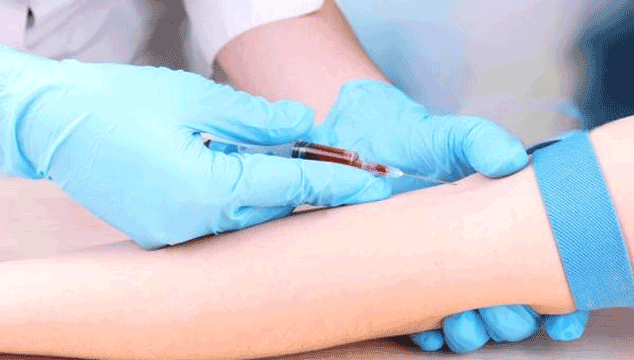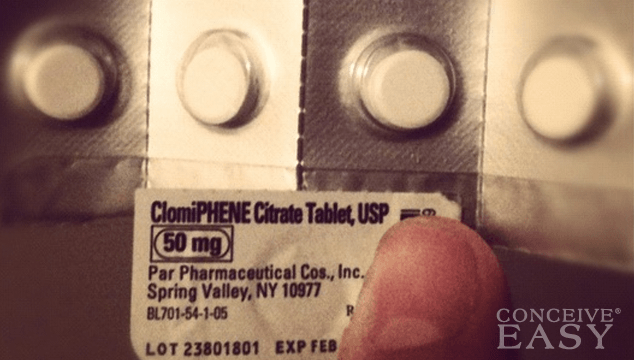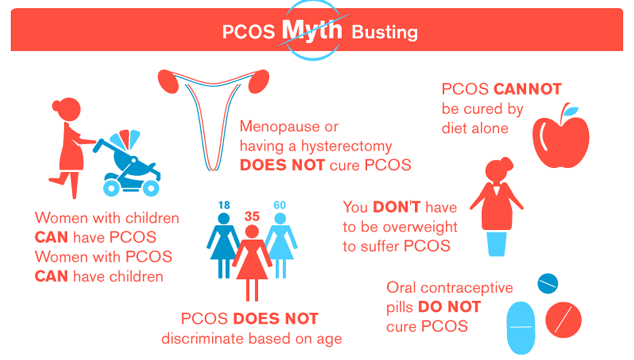![]() The information provided by our expert should not constitute a diagnosis of your condition. Always consult a medical practitioner or healthcare provider for a formal diagnosis. By making use of this content, you agree that ConceiveEasy and the expert assume no liability.
The information provided by our expert should not constitute a diagnosis of your condition. Always consult a medical practitioner or healthcare provider for a formal diagnosis. By making use of this content, you agree that ConceiveEasy and the expert assume no liability.
There are so many couples out there who are trying to conceive a baby. Some couples are successful, and a pregnancy is achieved within a year of trying. However, there are many couples who fail to achieve a pregnancy within a year and they become understandably concerned as a result. Claim Your 20 Free Pregnancy Tests – Click Here
If a pregnancy is not achieved in a year after ovulation charting, eating well and staying active and healthy- then there is clearly a fertility issue.
Because infertility is such a common problem, there is a growing list of different types of fertility pills for women in the market today, and have been for decades. However, fertility experts today are wanting to use pills as a last resort because of the risks associated with them. Unfortunately, many women who have significant fertility issues need these pills in order to achieve a pregnancy.
The way fertility pills that promote pregnancy work is by providing hormonal supplements to stimulate the development of mature egg cells and thus trigger ovulation to happen. Listed below are the types of fertility pills that clinics use to help women achieve pregnancy if absolutely needed.

Clomiphene citrate or Clomid is a synthetic hormone which is used to induce or regulate ovulation. In fact, Clomid is the fertility pill that is prescribed most often, and is the first pill to be tried before anything. Clomid is also referred to as Serophene. However, because Clomid is the brand name for clomiphene citrate that is most known, that will be the name used in this article.
The way Clomid works is by stimulating ovulation.
When Clomid is taken, the brain sends signals to the pituitary gland to release hormones. The most important hormone released is the follicle stimulating hormones (FSH) which circulates to the ovary where it gets follicle development going. A follicle is defined as a cystic structure that has estrogen producing cells surrounding the egg inside.
Once Clomid does its job and helps the follicle grow, ovulation will occur during that cycle.
The dosage of Clomid varies from patient to patient. Usually, a patient will start taking Clomid sometime between the 3rd and 7th day of her cycle. Day 1 is referred to as the first day of heavy menstrual flow, and it is taken for 3, 4, or 5 consecutive days. The first days of treatment, the dosage will be higher.
Therefore, ovulation is expected to happen between 9 and 12 days after the first dosage of Clomid. In most cases, if a woman is taking Clomid to stimulate ovulation, monitoring is a must. Otherwise, it would be a complete waste if ovulation happened which was not monitored, and the woman didn’t know it had happened.

Therefore, the cycle may be monitored by blood tests, ultrasound or just ovulation predictor kits (OPKs). When the results of these tests detect that ovulation is nearing, then the couple can either start having sex during those days or if artificial insemination is preferred, it can be done during those peak days.
Clomid has been used successfully by thousands of women over the several decades, and it is effective and reasonably safe.

However, just like with any prescription drug, there could be side effects and complications with Clomid.
That being said, the most common side effect of Clomid is hot flashes, anxiety and irritability. Other side effects can include headaches, nausea and sometimes abdominal pain.
The abdominal pain that is experienced in most cases is due to ovulation happening, in addition to bloating through the second part of the cycle. If pregnancy fails, period cramps may be pronounced when taking Clomid.
Another issue with Clomid is because it stimulates ovulation, ovarian cyst may temporarily appear but do resolve on its own in most cases. Once in a great while, these cysts may twist and rupture and cause extreme pain as a result.

Because Clomid is a weak fertility drug, not all women will conceive who take the drug. Approximately 85% of women who don’t ovulate regularly on their own will ovulate when taking the right dosage of Clomid.
About half of those women taking Clomid will end up pregnant.
Some factors will come into play that can prevent a pregnancy from happening. If cervical mucus is adversely affected, then intrauterine insemination (IUI) where the sperm is directly implanted into the uterus past the cervix is the best way to increase the odds of pregnancy. In fact IUI will be used to help a couple conceive if the man’s sperm quality is poor, and only good sperm that is left after a wash will be used. However, if pregnancy will happen with the help of Clomid, it happens within the first 4 or 5 months of treatment.

Because Clomid can increase the odds of ovulation significantly, there is a 10% higher chance of twins, and a 1% higher chance of triplets.
However, it is important to understand that there is a 20-25% chance of miscarriage of a pregnancy achieved from Clomid which is higher than the typical 15% chance of miscarriage.
The reason for this increased chance of miscarriage is due to preexisting conditions in women who needed to take Clomid. These conditions were the reasons behind her eggs not developing normally in the first place.

Clomid can also change the lining and receptivity in the uterus which could have increased the chance of miscarriage as well. That is why monitoring the uterine lining via ultrasound is necessary for patients taking Clomid.
There is no real proof that Clomid causes birth defects, but there have been concerns that the use of Clomid can increase the chance of ovarian cancer. Especially if a woman takes it for 12 cycles, and has family history of ovarian cancer.
Unfortunately, as mentioned above, Clomid, although being the easiest and least expensive fertility pill, it does not work on every woman. In fact, it is rare for fertility specialists to let patients take Clomid for more than 6 cycles if pregnancy has not been achieved. That being said, more potent fertility pills have to be looked at. For instance, Letrozole is another drug that is commonly used to treat female infertility.

There are fertility pills which are aromatase inhibitors, drugs which temporarily prevent estrogen production. In fact, these pills are similar to Clomid because aromatase inhibitors initiate the release of FSH. FSH again stimulates follicle growth. This type of medication is called Letrozole or also Femara.
The truth about Letrozole is that it is slightly less likely to stimulate ovulation like Clomid does. However, there are advantages that come with Letrozole that Clomid lacks which includes less drying up of cervical mucus.
Letrozole also promotes thicker development of the lining of the uterus, and the odds of a multiple pregnancy is less than it is with Clomid.
The fact of the matter is that Letrozole is not certified for use as a fertility drug by the FDA, but these drugs can be used by doctors for off-label indications at their discretion.

Sometimes an alternative to Clomid is Tamoxifen. Tamoxifen works through the same mechanisms as Clomid, but is more potent. Even though Tamoxifen is not FDA approved for use as a fertility drug, doctors can use it for this “off-label” indication at their discretion.

There is another “off-label” drug used for fertility that involves medications normally prescribed to diabetics that do not require insulin. The two most commonly used diabetic drugs to treat infertility are Metformin which is known as Glucophage, and pioglitazone known as Actos. The purpose of these drugs are to lower insulin levels in women who have polycystic ovarian syndrome (PCOS).

Women who have PCOS have high testosterone levels, and are insulin resistant which can impede regular ovulation. Therefore, these drugs are meant to lower insulin levels which will help regulate ovulation in women with PCOS.
However, these insulin lowering drugs do have some unpleasant side effects which include stomach and intestinal upset, as well as bloating and gas. However, if women are taking these drugs, doctors have to monitor their liver enzyme levels because they can be affected.

Above listed are the pills that fertility specialists frequently prescribe to help infertile women conceive.
However the fact of the matter is that taking fertility medication whether they are in pill form, or injectible form (which are far more potent than any fertility pill and are used as the absolute last resort because fertility pills are safer) is stressful.
Having to take these pills are draining – emotionally, mentally, physically and financially.
Some insurance plans cover the cost of fertility drugs, but depending on the treatment that is needed- not all treatments are covered. That being said, some couples may want to try the natural approach to increasing fertility before running to their doctors so they can be referred to fertility clinics.

In fact, here is something that you probably didn’t even know! Some vitamins, minerals and herbs are typical ingredients found in the best fertility pills for women!
Examples of herbs found in these fertility pills are:
• Clover Blossom
• Ginseng
• Gingko Biloba
• Grape Seed Extract
Those are the herbs that are commonly found in fertility pills because they are there to help with hormonal balance.
In fact, before going to the health food store to buy those supplements, you will want to consult a naturopathic doctor who will be able to help you in regards what to take, and the dosages. Even though these herbal remedies for female fertility are relatively inexpensive, they can still have side effects, and harmful long term effects. This is why you need professional advice when it comes to taking herbal remedies.
A reputable natural path will advise you to take these herbal remedies to treat infertility for a certain amount of time. However, he or she will also tell you that if pregnancy has not been achieved within a particular timeframe, then you must go to your doctor to be referred to a fertility specialist.
However, while you are taking fertility pills regardless of which ones, there are very important steps to take to not only keep yourself healthy but to help aid the process of getting pregnant.

Vitamins like A and C and calcium are essential because they are needed for the formation of the fetus’ bones and teeth. In addition, folic acid and B6 are incredibly important to take because they are the building blocks (especially folic acid) for the development of the baby’s spinal cord, nervous system and brain.

There are prenatal vitamins that you can take while you are trying to conceive, and you should start taking folic acid for at least 3 months before trying. This way, it is built in your system to help prepare a healthy pregnancy.

In order to help increase the chances of pregnancy to happen even while on fertility medication, you need to eat healthy foods and reduce sugar intake. Also don’t drink more than one caffeinated beverage a day such as coffee or tea, and quit smoking, drinking and doing drugs all together.

Increasing your activity levels is very important while trying to conceive, that is only if your lifestyle is somewhat sedentary. If you take a walk for 20 to 30 minutes at least 3 times a week, that will help you develop good physical, as well as mental and emotional health. You will also develop the stamina, and cardiovascular strength you need in order to facilitate a healthy pregnancy if you get the proper amount of exercise. The amount and type of activities you can do depends on your overall ability.
If you are unsure about how much exercise is too much, which is not a good idea either as either extreme in activity can impede pregnancy from happening no matter what kind of fertility treatment you are on- then it is best to call your doctor to ask for advice. You will also want to keep your stress levels as low as possible!

Even if you are on fertility pills, conceiving may be hard if you are under an incredible amount of stress. Since stress cannot be avoided completely, you can find ways to lower it by improving your lifestyle by adding meditation, and yoga and alone time.
Try to keep your home a low stressful environment as well by cleaning up and removing clutter. Have your other half help you with chores. Surround your home with soothing colors as well. You may even want to get a fish tank with beautiful fish because watching fish swim can be very soothing. That is if you aren’t bothered by having to clean up the tank often.
If you need to take fertility pills to help ovulate regularly and increase the chances of conceiving, then you need to increase the odds of that happening further by taking care of yourself by eating well, getting the vitamins you need, removing stress and staying active. Best of luck!










Comments